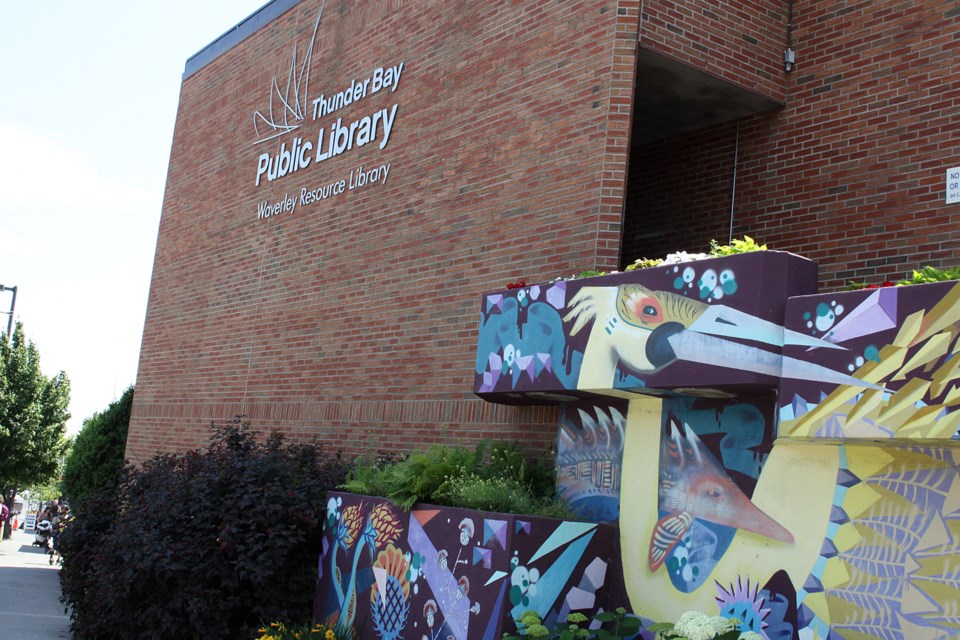THUNDER BAY – As community organizations band together to form a coalition to combat racism and promote inclusivity, initiatives done by the Thunder Bay Public Library could help set a direction of how to move forward in reconciliation.
Over the last two years, the library has proactively embraced calls to action from the Truth and Reconciliation Commission and the recommendations from the Seven Youth Inquest to develop measures to decolonize its operations and services.
The library was one of the 11 original signatories last June to the Thunder Bay Anti-Racism and Inclusion Accord, which welcomed five new members on March 1.
Thunder Bay Public Library Indigenous liaison Robyn Medicine pointed to the library’s modernization efforts as an example of how decolonization and inclusion can be achieved at the same time.
“A lot of people are starting to use the library more. We don’t offer just books, computers and Wi-Fi. We’re in the process of transitioning into community hubs, which allows us to explore many opportunities that a standalone public library couldn’t,” Medicine said, referencing the bond between Anishinabek Employment and Training Services and the library at the Waverley Public Library branch.
“That partnership is a sharing of resources. It’s still a fairly new partnership and we’re still working on building that relationship and also trying to figure out how exactly we can share resources. That’s ultimately going to serve the Indigenous community of Thunder Bay.”
The library has created Indigenous knowledge centres at each of the four branches. Those areas feature curated material for all ages, which includes resources on Indigenous people in Canadian history, treaties, residential school legacy records and other subject areas and themes identified by the Indigenous community.
Medicine admitted there was some initial consideration about whether it was a move in the right direction.
“When the idea first came up to create a space where we would have all Indigenous materials from our collection, there was a worry about segregation,” Medicine said. “I think over time people started to warm up to the idea. (The Indigenous advisory council members) would have informal discussions and conversations out in the community.”
The library is inviting members of the public to suggest a permanent name for the Indigenous knowledge centres, a process which Medicine believes sends an important message.
“I think by allowing Indigenous people to be a part of the planning and decision making, that’s really important,” Medicine said. “It goes beyond the formalities and having to have people with certain standings (be) the decision makers but I think we need to start changing that mindset, especially when we’re talking about decolonization and reconciliation.”
Samantha Martin-Bird, Thunder Bay Public Library Indigenous relationships supervisor, said her community hub librarian position was rebranded based on the Truth and Reconciliation Commission calls to action.
While she said it’s important to take small steps and celebrate wins when there is progress, she acknowledged the library isn’t finished.
“We recognize that we haven’t arrived yet,” Martin-Bird said. “There is still a lot more work for us to do and a lot of ways for us to create a safe space for Indigenous people. There are more things we can do to decolonize.”
Other signatories to the accord include the City of Thunder Bay, Fort William First Nation, Thunder Bay Police Service, Thunder Bay Regional Health Sciences Centre, St. Joseph’s Care Group, Lakehead University, Confederation College, Lakehead Public School Board and the Thunder Bay Catholic District School Board.
S. Brenda Small, vice president of the centre for policy and research in Indigenous learning at Confederation College, said the accord raises the profile of the conversation about racism in Thunder Bay.
“I think it’s important for the city and Indigenous people and people who are new to the city, recent immigrants, it’s important that there is a strong signal sent out that the city of Thunder Bay is aware and informed about racism in its environment and making a conscious effort to address racism,” Small said.
